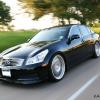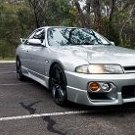Optimax Extreme What’s Needed?
Announcements
-
Similar Content
-
Latest Posts
-
By shubby0901 · Posted
End game is to: - Remove all the slop from old worn parts - Adjust setup so that the wheels actually fit and the car is drivable (currently it is not because of the extreme rubbing on the guards). Progress over the last couple of days, removed the rear hubs! Next steps: - Buy bushings - Replace bushings/bearings on hub - Reinstall -
By Dose Pipe Sutututu · Posted
Cracked deck And other cam snap stuff -
By TurboTapin · Posted
A few random issues have popped up since my last update. My WMI pressure sensor failed within about 10 minutes of it seeing liquid. It was a 20$ China special, so I'm not surprised. My name brand replacement should arrive today. My power steering assist also decided to crap out last weekend. The usual, works for about 60 seconds after starting the car then I lose it. I dusted off my old copy of NDS and connected to the HICAS ECU. Code 4 for assist solenoid.... I tested the solenoid and it's fine. I knew the day where my HICAS ecu would crap out would come, and I welcome it. It was the last HICAS part on the car that is now in the bin. I've ordered an SSR and I will control the power steering solenoid with my Haltech ecu. It will be nice to have proper speed referenced assist again after all these years. -
By TurboTapin · Posted
Haha I just finished the last season of TPB: Jail last month. I'm happy they're still pumping out episodes.
-







Recommended Posts
Create an account or sign in to comment
You need to be a member in order to leave a comment
Create an account
Sign up for a new account in our community. It's easy!
Register a new accountSign in
Already have an account? Sign in here.
Sign In Now